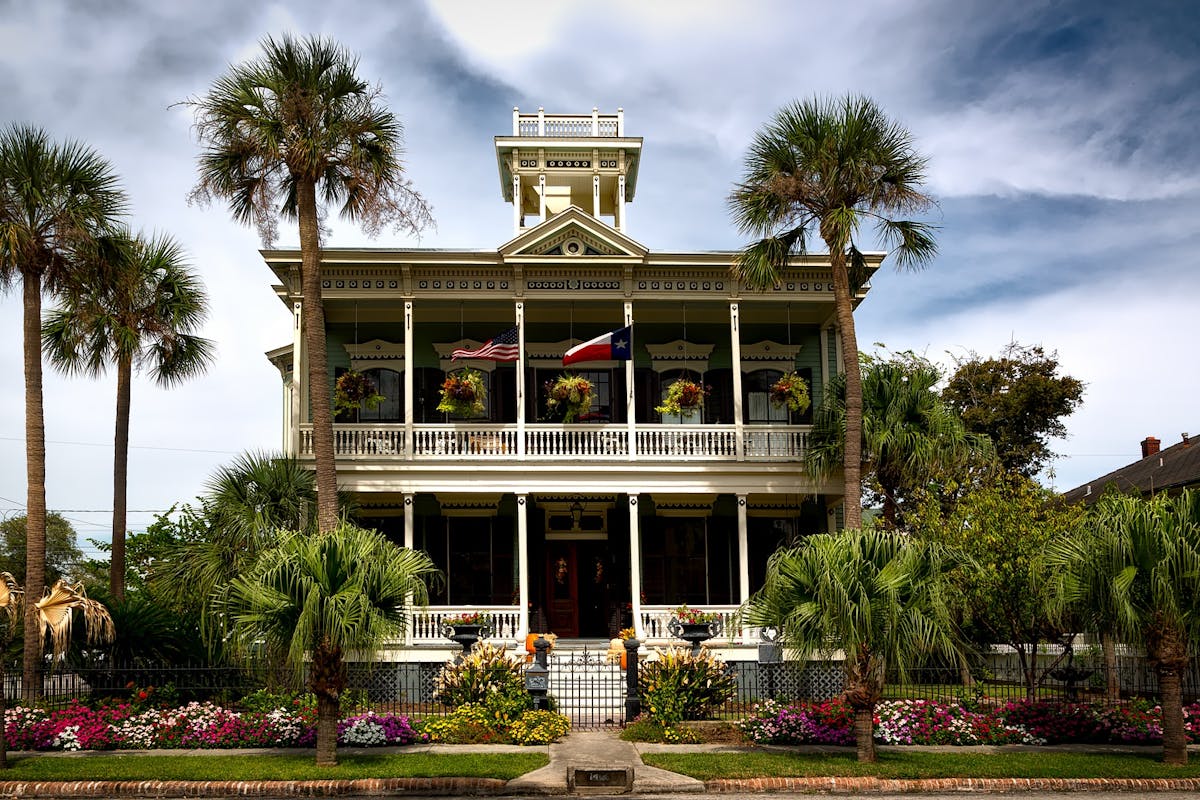Airbnb's robust system simplifies the process for hosts, paired with an expanding global user base eager to explore authentic and personalized travel experiences. This is good news for investors as this growth assures them that the short-term rental market is expanding.
Thank you for reading this post, don't forget to subscribe!Factors such as an increasing inclination towards remote work and flexible lifestyles have heightened demand for longer stay options in diverse locations, influencing rental strategies and pricing.
Are you an inverter looking to get into the Airbnb business? We’ll look at a comprehensive Airbnb checklist that will help you strategize on setting up your short-term rental property.
Airbnb Checklist: How to Start an Airbnb Business
Understand Your Short-Term Rental Market
- Current Market Trends: Remote work policies have bolstered demand for stays in scenic, rural destinations. Sustainability and eco-friendly accommodations are increasingly influential, with more guests prioritizing properties that offer green solutions. Understanding these trends is vital to position your property effectively in the market.
In 2024, the Airbnb market continues to evolve with significant trends influencing the way investors should approach their business strategies. Urban areas are seeing a resurgence in short-term rentals as international travel stabilizes and business travel picks up.
- Identify Your Prospective Clients: Identifying your target audience is a cornerstone of any successful marketing strategy, especially in short-term rentals. The most profitable guest demographics often vary by location and property type.
For instance, luxury apartments in city centers may attract business travelers, while cottages in wine country appeal to couples seeking romantic getaways. Analyzing guest reviews and competitor offerings can provide insights into who your ideal guests might be and what specific amenities might attract them.
- Do a Through Location Analysis: Choosing the right short-term investment location is another critical decision for Airbnb investors. The ideal location balances demand and supply, offers attractive local amenities, and aligns with your target demographic's preferences.
Factors such as proximity to tourist attractions, business hubs, or natural landscapes will impact your occupancy rates. Tools like Airbnb’s own market analysis features can help you understand where guests are looking to stay and what kind of properties are performing well.
- Regulations and Legal Considerations: Every prospective Airbnb host must navigate a complex landscape of regulations and legal considerations.
These can include zoning laws, which dictate where short-term rentals may or may not be allowed; licensing requirements, which vary widely from city to city; and tax obligations, which include not only income taxes but also potential tourist or occupancy taxes.
Before investing, ensure you consult with legal experts and local authorities to fully understand and comply with all local regulations, thus safeguarding your investment against legal troubles.
Setting Up Your Airbnb Business
A good setup of an Airbnb business will impact both your operational efficiency and profitability. As you consider the Airbnb startup cost and prepare to launch your venture, it’s essential to understand the foundational elements that will shape your business. Let’s take a closer look.
Decide on a Practical Business Structure
Choosing the correct business structure is foundational to managing your liabilities and taxes efficiently. For many Airbnb hosts, a sole proprietorship might seem an attractive choice due to its simplicity and ease of setup.
However, forming a Limited Liability Company (LLC) could offer significant advantages, including protecting your assets from business debts and lawsuits, which is crucial in the hospitality industry.
Depending on your business goals, financial situation, and the level of risk you're comfortable with, the decision might vary. Consulting with a business attorney can provide personalized insights and help you make the best choice for your circumstances.
Have a Financial Plan
A clear financial plan is vital for any new business. For an Airbnb, this means understanding the full scope of Airbnb startup costs—initial investments such as property acquisition or leasing, renovations, furniture, and other setup expenses.
Beyond the startup phase, effective budgeting and profit forecasting becomes crucial. You’ll need to consider ongoing costs like utilities, maintenance, cleaning services, and supplies, and compare them against your expected revenue based on market rates and projected occupancy.
Tools like financial management software can aid in tracking your expenses and income, helping you maintain a profitable operation.
Consider Your Insurance Needs
Insurance is another critical consideration for Airbnb hosts. At a minimum, you'll need comprehensive property insurance that covers damages to the structure and its contents.
Additionally, liability insurance is essential to protect against claims if someone is injured on your property. Many hosts may not be aware that traditional homeowners' insurance might not cover issues arising from commercial rental use, making it necessary to obtain specific short-term rental insurance.
This specialized coverage can include protection for lost income due to unforeseen property damage leading to business interruption, further securing your investment.
How to Acquire Your Airbnb Property

1. Buying vs. Leasing
The choice between buying and leasing property for Airbnb use comes with distinct pros and cons:
- Buying: Owning a property gives you full control over the space and the freedom to make modifications that can enhance guest experiences and potentially increase your rental income.
It can also appreciate over time, providing a significant return on investment. However, the upfront costs are substantial, and the financial risk is higher, especially if the property's location falls out of favor or market conditions shift.
- Leasing: Leasing a property can be a more accessible entry point for those considering starting an Airbnb business without owning property. It requires less capital upfront and allows for more flexibility to adapt to changing market conditions.
However, your ability to modify the property may be limited, and you'll need a landlord’s agreement to use the property for short-term rentals, which is not always guaranteed.
2. Property Hunting Tips
- Location: Properties located near tourist attractions, business centers, or within vibrant neighborhoods tend to attract more guests.
- Unique Amenities: Features like a hot tub, a fireplace, or a spectacular view can set your listing apart.
- Practical Layout and Design: A well-designed space with modern, functional amenities and a kitchen can appeal broadly to guests.
- Connectivity: Good Wi-Fi is a must, and proximity to public transport or parking availability can enhance guest satisfaction.
3. Financing Options
- Mortgage Loans: Traditional mortgages are a common option for buying property, but specific loan types are tailored for investment properties that might offer better terms based on your plans to rent out the property.
- Private Lenders: For those unable to secure traditional financing, private lenders can offer more flexible terms, though often at higher interest rates.
- Government Grants and Incentives: In some regions, government programs can assist with the purchase of property for business purposes, including special grants or tax incentives for developing tourist areas or revitalizing neighborhoods.
Preparing Your Airbnb Property For Your Target Audience

Design and Furnishing
The interior design and furnishing of your Airbnb play a pivotal role in its appeal. To create an appealing and comfortable space:
- Aesthetic Appeal: Choose a design theme that resonates with your target audience, whether it's modern, minimalist, rustic, or themed decor based on the property's location (like coastal or mountain themes).
- Functional Furnishings: Equip your space with high-quality, comfortable furniture. Provide practical items such as a well-equipped kitchen, cozy bedding, and ample storage, which are essential for both short and long stays.
- Personal Touches: Small details like artwork, plants, and decorative items can make a space feel more inviting and lived-in, enhancing the overall guest experience.
Smart Technology Investments
Incorporating smart technology will enhance guest convenience and streamline property management:
- Automated Check-In/Out Smart locks or keyless entry systems allow for a smooth, contact-free check-in and check-out process, appealing to tech-savvy travelers and those arriving at odd hours.
- Climate Control: Smart thermostats not only improve a guest’s ability to manage their comfort but also help you monitor energy usage and keep costs down.
- Entertainment: Smart TVs, streaming devices, and high-speed internet access are expected features that cater to guests looking for in-house entertainment options during their stay.
Safety and Accessibility Improvements
- Safety Codes: Ensure that your property is equipped with smoke detectors, carbon monoxide detectors, fire extinguishers, and emergency exits. Regular safety inspections can help maintain these standards.
- Accessibility: If possible, make your property accessible to guests with disabilities. This can include features such as ramp access, grab bars in the bathroom, and minimal use of stairs. Enhancing accessibility can open your property to a broader audience and is especially valued in today’s inclusive travel culture.
Operational Management For Your Airbnb Property

Guest Communication
Communication is a cornerstone of good service in the hospitality industry. Best practices include:
- Pre-Arrival Communication: Send guests a welcome message with all necessary details about their stay, including check-in instructions, WiFi passwords, and contact information. This helps set the tone for a smooth experience.
- During the Stay: Be available to respond to any queries or issues promptly. A quick response time not only solves issues efficiently but also shows your guests that you care about their comfort.
- Post-Stay Follow-up: After guests check out, sending a thank-you message can leave a lasting positive impression. Ask for feedback and a review, and invite them to book your property again in the future.
Cleaning and Maintenance
- Efficient Turnover Processes: Develop a checklist for cleaning staff to ensure that no details are missed between guest stays. This should include laundering linens, restocking essentials, and a thorough cleaning of all rooms.
- Scheduled Maintenance: Regular maintenance checks can prevent unexpected issues during guest stays. Keep a log of all maintenance activities, and schedule professional inspections of major systems like HVAC and plumbing annually.
- Quick Response to Issues: Establish a process for addressing maintenance issues reported by guests. Having a local handyman or a reliable maintenance service on call can help resolve problems swiftly, minimizing inconvenience to your guests.
Technology for Management
Leveraging technology can enhance the efficiency and effectiveness of managing your Airbnb:
- Property Management Software: Use specialized Airbnb or vacation rental software to manage bookings, payments, and guest communications all in one platform. This can reduce the administrative burden and minimize the risk of double bookings.
- Smart Home Devices: Smart devices such as thermostats, security cameras, and noise monitors can help you monitor your property remotely. These tools can improve guest safety and help you ensure that your property rules are being followed.
- Mobile Apps: There are free short-term rental management software that can help you manage your operations on the go. From mobile check-in systems to cleaning crew coordination, these tools ensure you can maintain oversight wherever you are.
The Short Term Shop Can Help You Start and Scale Your Airbnb Business
The Short Term Shop is dedicated to helping investors set up and expand their investment portfolios in the short-term rental market. We help you buy, sell, and manage your short-term rental properties.
Our team of exclusive short-term rental agents leverages data-driven insights and in-depth local market knowledge to guide you in identifying promising investment opportunities and facilitating property purchases.
This investment strategy ensures that, as an investor, you can steadily grow your property portfolio and enhance your overall investment potential to maximize returns.
For more information about starting an Airbnb business, schedule a consultation call with a short-term rental agent from The Short Term Shop
